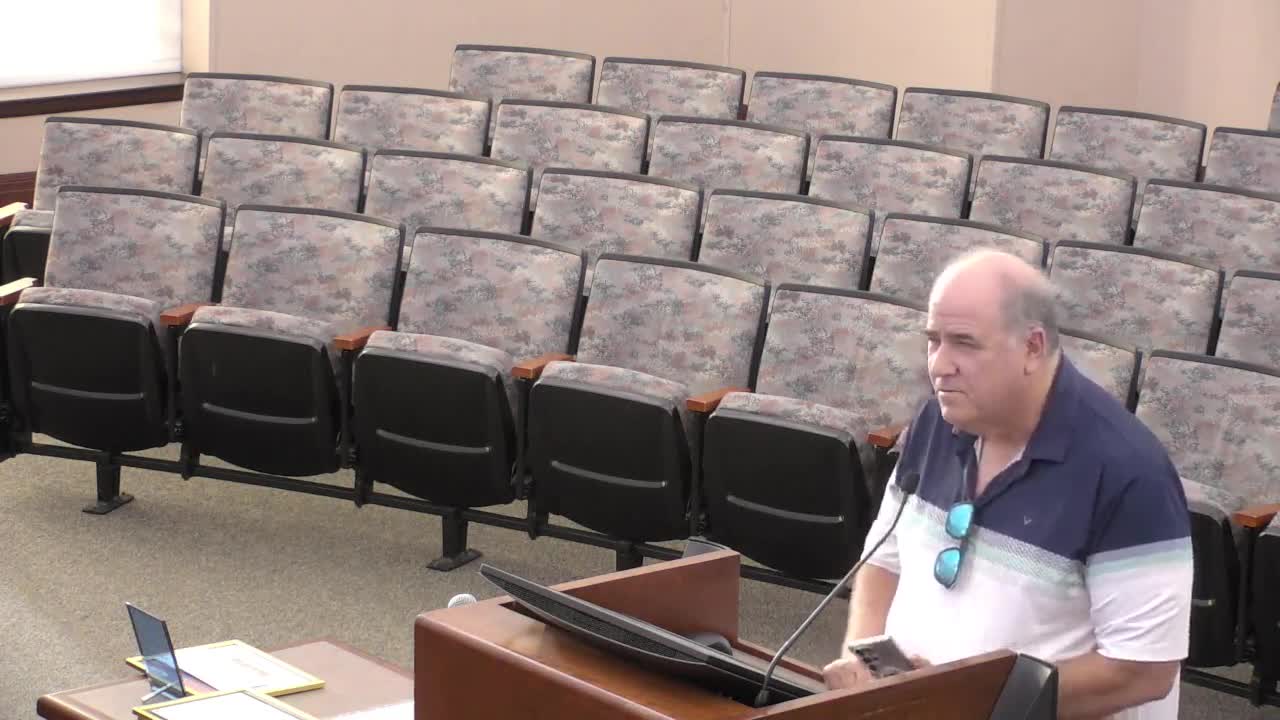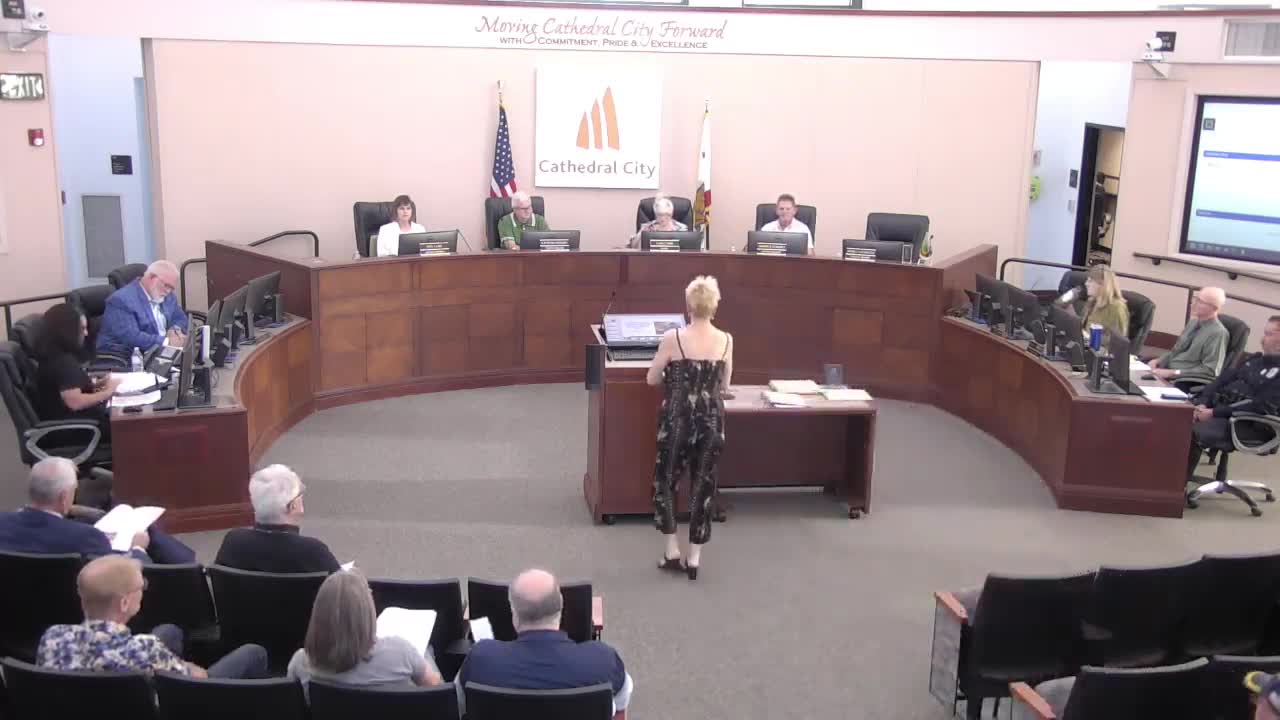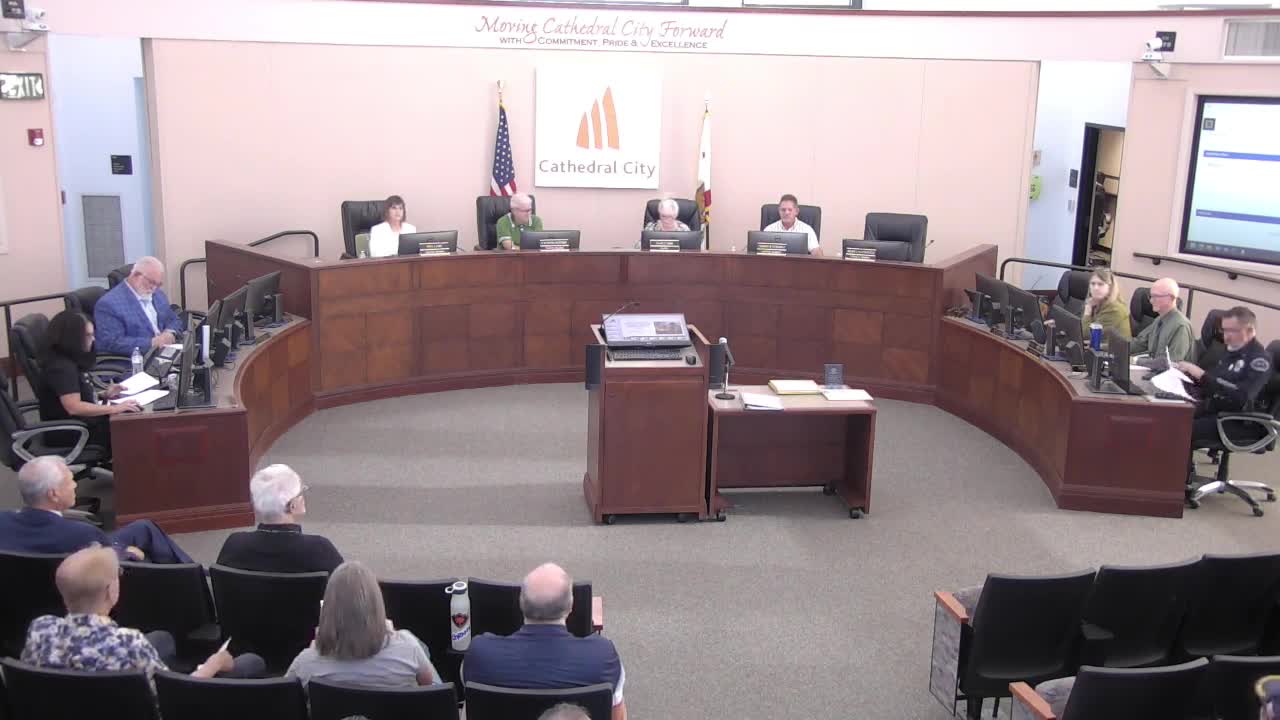Article not found
This article is no longer available. But don't worry—we've gathered other articles that discuss the same topic.

Cathedral City council adopts biennial budget, extends engineering contracts and approves Measure W spending for a fourth ambulance

Residents press council on resort odor, neighborhood service gaps and allegations about a councilmember

